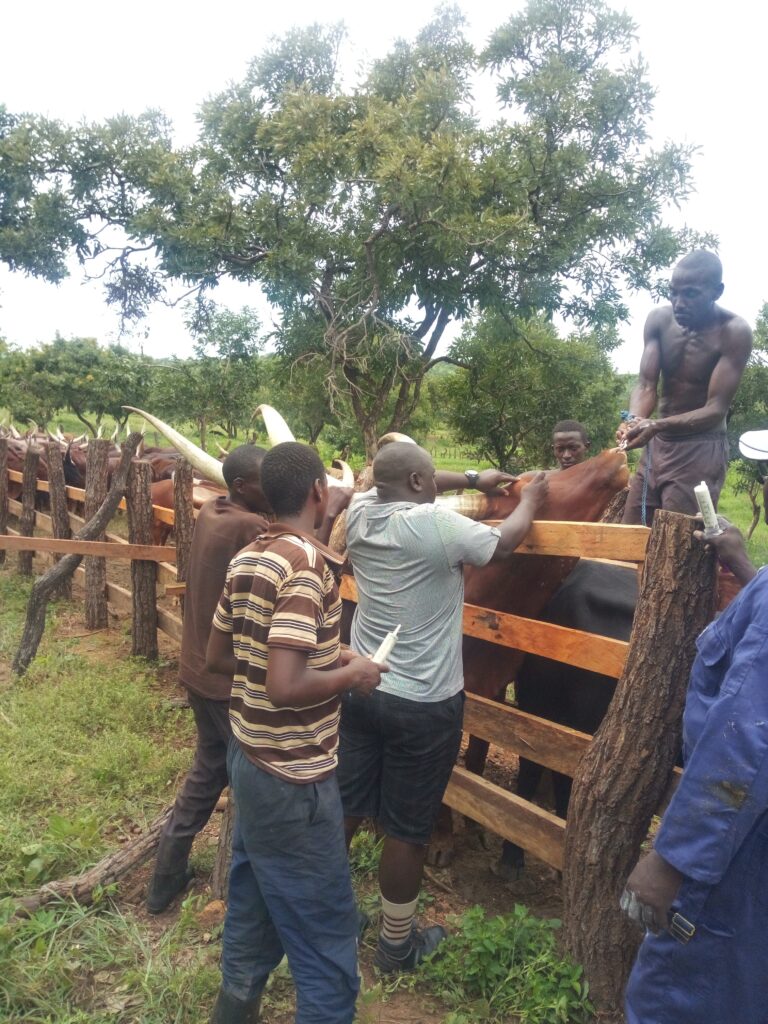Uganda Meat Producers Cooperative Union Ltd (UMPCU) is hinged on five focus areas in order to achieve its objectives. These are:
- Livestock production and productivity
- Access and Inclusion
- Livestock Marketing
- Lobbying and Advocacy
- Institutional development
There are several aspects that form each of the focus areas above, however, in this excerpt we shall dwell on animal health development which is part of livestock production and productivity.
UMPCU has three qualified veterinary doctors, supported by assistant animal husbandry officers. The team is also supported by two laboratory technologists based at the Union’s animal health diagnostics laboratories in Ntutsi, Sembabule district, and in Butalangu, Nakaseke district.
With funding from the European Union (E.U), UMPCU is able to actively conduct animal disease control measures for the Union’s farmers who are located in Uganda’s “cattle corridor”. The E.U funded Farmer Led Beef Livestock Investment and Sustainability project aims at enhancing beef meat production, productivity, and quality assurance in the target areas. This is through the promotion of climate-smart, low emission, local, and regional meat industry which is responsive to the different needs of women, men, and the youth.

In an interview with Dr. Joseph Ruhinda, UMPCU’s Programs Manager, he outlined a number of activities which take place under animal health development here below:
- Livestock disease surveillance and monitoring
There are endemic diseases affecting animals periodically, so there is a need to monitor and check if there are indicators leading to this. Routine examinations are also done during such visits and reports sought from the farms or veterinary counterparts.
- Livestock disease outbreak investigation using laboratory diagnosis of animal specimen samples. For instance, where there is the rampant abortion of animals or a particular disease outbreak, the UMPCU veterinary doctor goes to the farm and picks samples (blood or faecal), for further analysis and disease diagnostics.
- Animal disease case management and/or treatment e.g. Tick-borne diseases, fevers, diarrhoea, etc. Once the diagnosis has been made, then the case is managed and the sick animals are immediately attended to.

- Livestock disease Prevention and Control through vaccination for all notifiable diseases like Foot-and-Mouth Disease (FMD), contagious bovine pleuropneumonia (CBPP), and clostridial infections among others. Animals that are susceptible to disease infection are either vaccinated or managed appropriately.
- Strategic control of parasitic diseases such as deworming using anti-helminthics (dewormers). Usually, during the rainy season, it is advisable to treat the cattle because they are susceptible to worms infestation which needs to be controlled. In the case of tick control, intervals of treatment using acaricides are moderated accordingly.
- Emergency and corrective surgical operations like calf-delivery by Caesarean section etc. For example, if an animal has eaten something which causes bloating, or is injured, or suspected to have swallowed a sharp object, it is attended to with such procedures.
